Schulz + Dr. Katharine Wilkinson
In order to reverse climate change, we need radical change, which Dr. Katharine Wilkinson believes means more women in power.
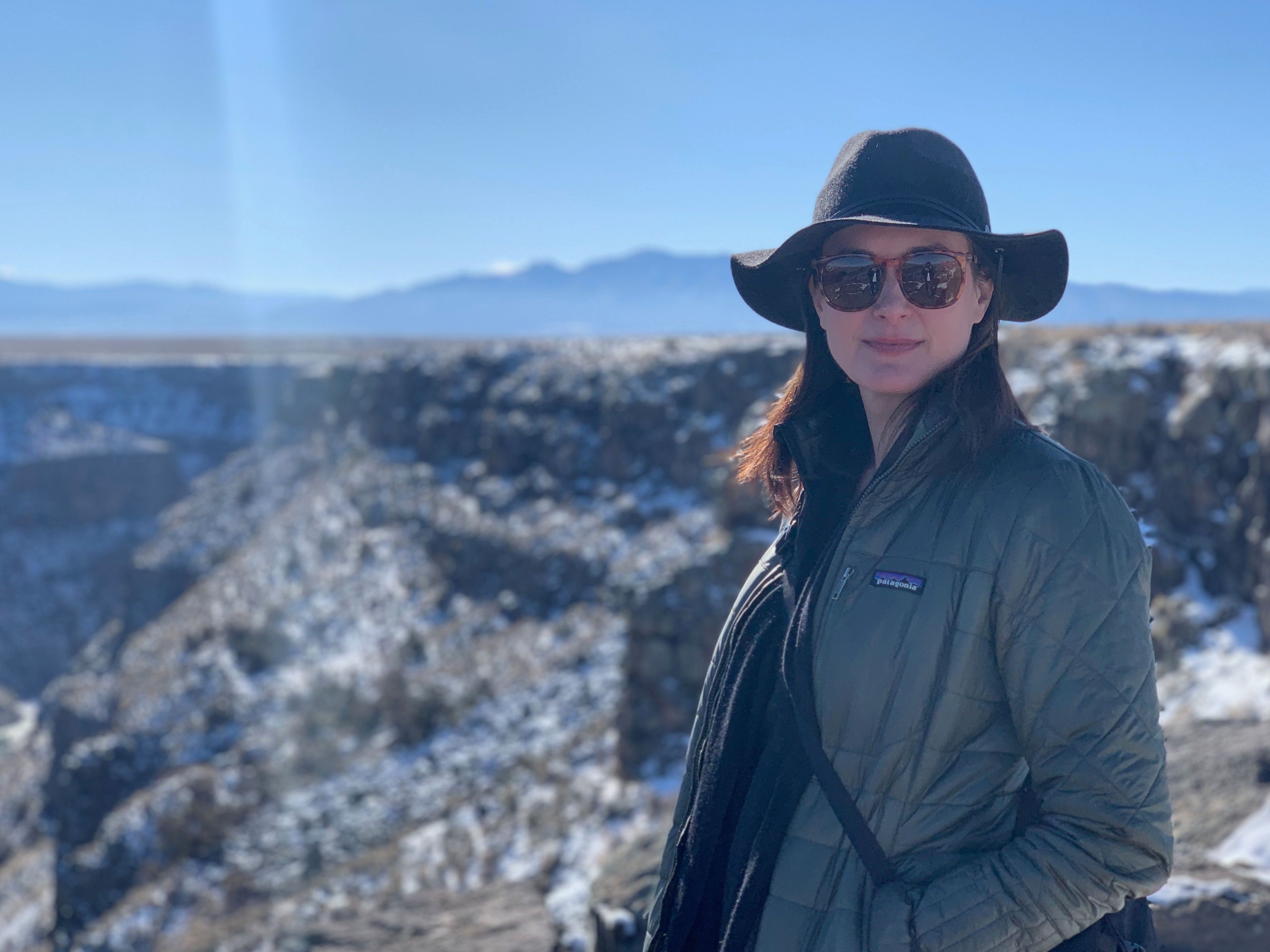

When Dr. Katharine Wilkinson, the founder of the All We Can Save Project, starts to feel hopeless about climate change, she tells herself the following: “The fundamental truth of this planet is that life keeps on creating more life — it’s the force that wants to keep moving forward.” That life force, she continues, is “so much bigger and more powerful than [humans] are.” Humans are capable of incredible harm; but they are also capable of radical imagination and love.
At times, sustaining hope in regard to climate change can feel impossible. Every year, as we fail to collectively act, humanity comes closer to dangerous tipping points, which could lead to catastrophes like the complete loss of the Amazon rainforest and hot temperatures that would make much of the world uninhabitable for humans and creatures that have lived here for millennia—including horses. In order to reverse the trend towards destruction, Dr. Wilkinson believes that we must act collectively. Women, in particular, excel at doing exactly that.
Which is why Dr. Wilkinson has decided to invest her time and energy into elevating women to positions of leadership in the climate movement. “The climate crisis itself comes out of a patriarchal system, entangled with racism, white supremacy, and extractive capitalism,” she says. For so long, conversations about climate change have been dry and scientific, led by “cabals of white men” in politics, finance, and business—the very people who got the earth into this mess in the first place. Perversely, climate change will disproportionately affect women, and especially women of color. Women are 4% more likely to live in poverty than men; they have less access to basic human rights such as the ability to acquire land or open a bank account; and they are more likely to work in the informal economy, meaning that they lose their livelihoods during times of crisis, as the COVID-19 pandemic continues to prove.
In order to reverse the current trajectory, Dr. Wilkinson, who authored numerous publications on climate change including the New York Times bestseller Drawdown (2017), believes that we must try new systems of operating. One such solution is giving women, and especially women of color, the microphone.
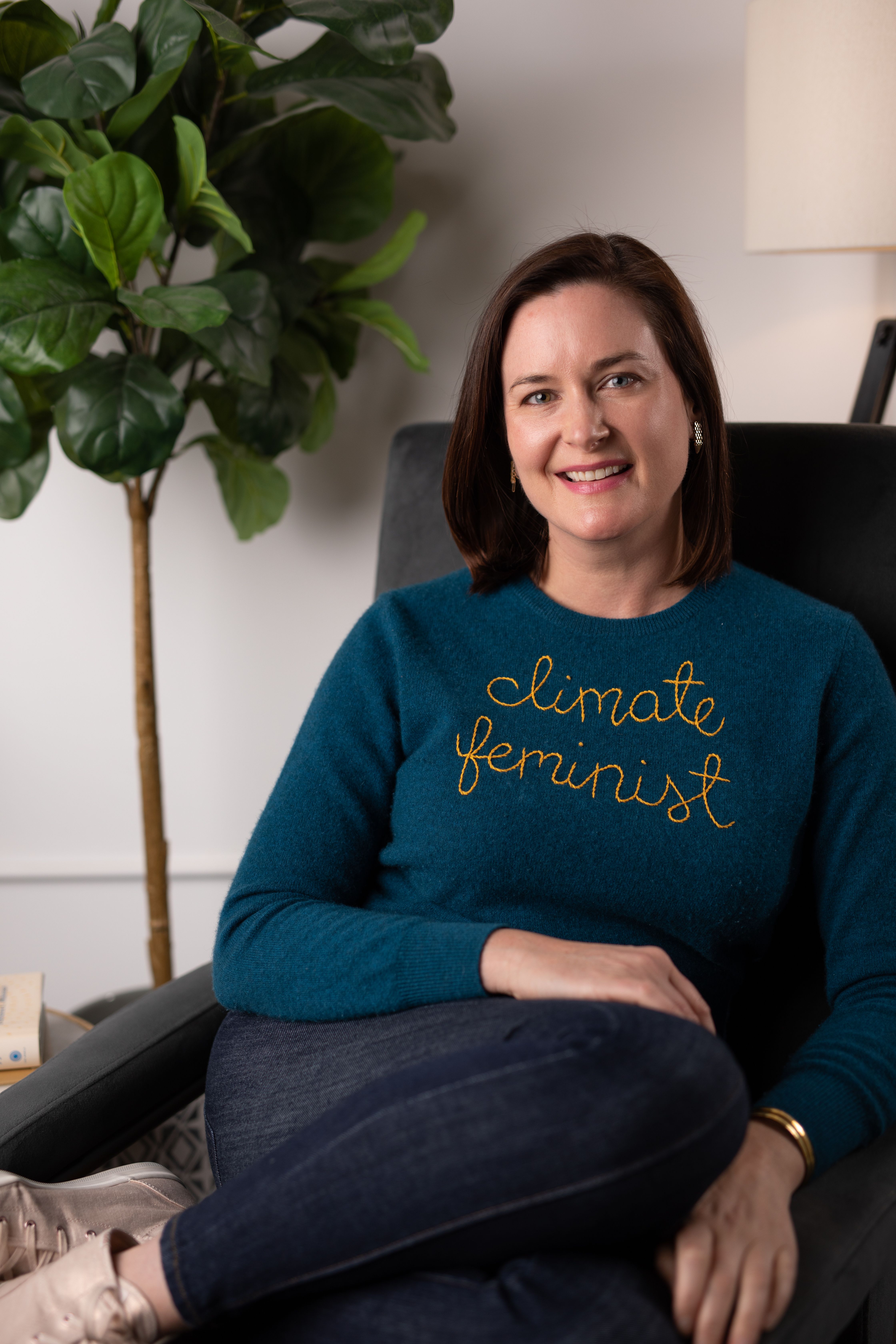
Photo credit: Ben Brinker
Dr. Wilkinson has long advocated for gender parity as a solution for climate change. In a 2018 TED Talk, which currently has over 1.9 million views, she outlines the ways that gender equity around the world can immediately and effectively reduce carbon emissions. Firstly, by providing women in poor countries, who produce 60 to 80% of the food supply, with equal opportunities to acquire technology and education that will make their farming methods more productive — and lead to less overall deforestation which accounts for 10% of global carbon emissions. Secondly, by giving women equal access to education, which leads to long term financial security and greater agency in decision making. And finally, by giving women access to voluntary healthcare will allow them to have kids by choice rather than by chance — and allow them to adapt better to climate catastrophes. (Dr. Wilkinson is careful to note that population growth is not the cause of climate change — instead, she says that rich people and rich countries burning exorbitant amounts of fuels are to blame.)
Dr. Wilkinson knows that basic gender parity is not enough. In order for real change to occur, women have to be given power. “We know climate outcomes are better when women are leading,” Dr. Wilkinson says. A study published in the European Journal of Political Economy in 2019 found that female representation in government leads to countries adopting more stringent climate change policies. Women leaders are also more likely to pass environmental legislation, and more likely to sign international environmental treaties.
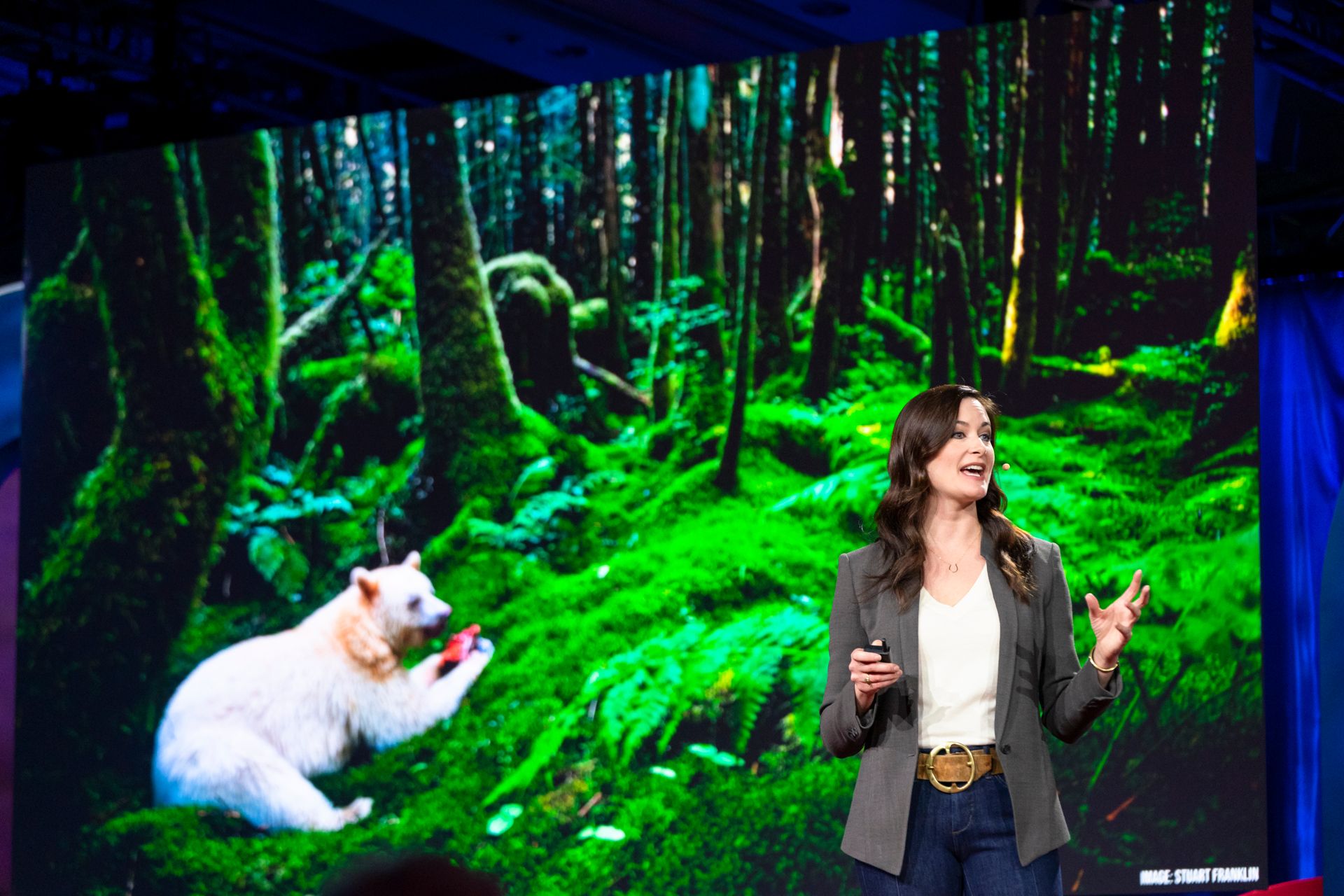
Photo credit: Callie Giovanna
In order to facilitate and support female leaders, Dr. Wilkinson co-founded the All We Can Save Project with her friend and colleague Dr. Ayana Elizabeth Johnson, who is a marine biologist and policy expert. The two connected through Twitter and became fast friends at a climate conference in Colorado, where, frustrated by the preponderance of white male voices, they decided to form an organization together. The first act of the organization was hosting a retreat in Montana for thirty women climate leaders in the summer of 2019.
While on the retreat, which took place on a ranch, Dr. Wilkinson watched her colleagues interact with the resident horses. “It was amazing to see all of these folks either connecting with horses for the first time, or the first time in a long time, and seeing how healing and grounding that is,” she says. “It was really moving.”
Arguably, horses are Dr. Wilkinson’s first love — and certainly one of the reasons why she is so passionate about saving the earth. “I came into the world feeling magnetically drawn to horses,” she says.
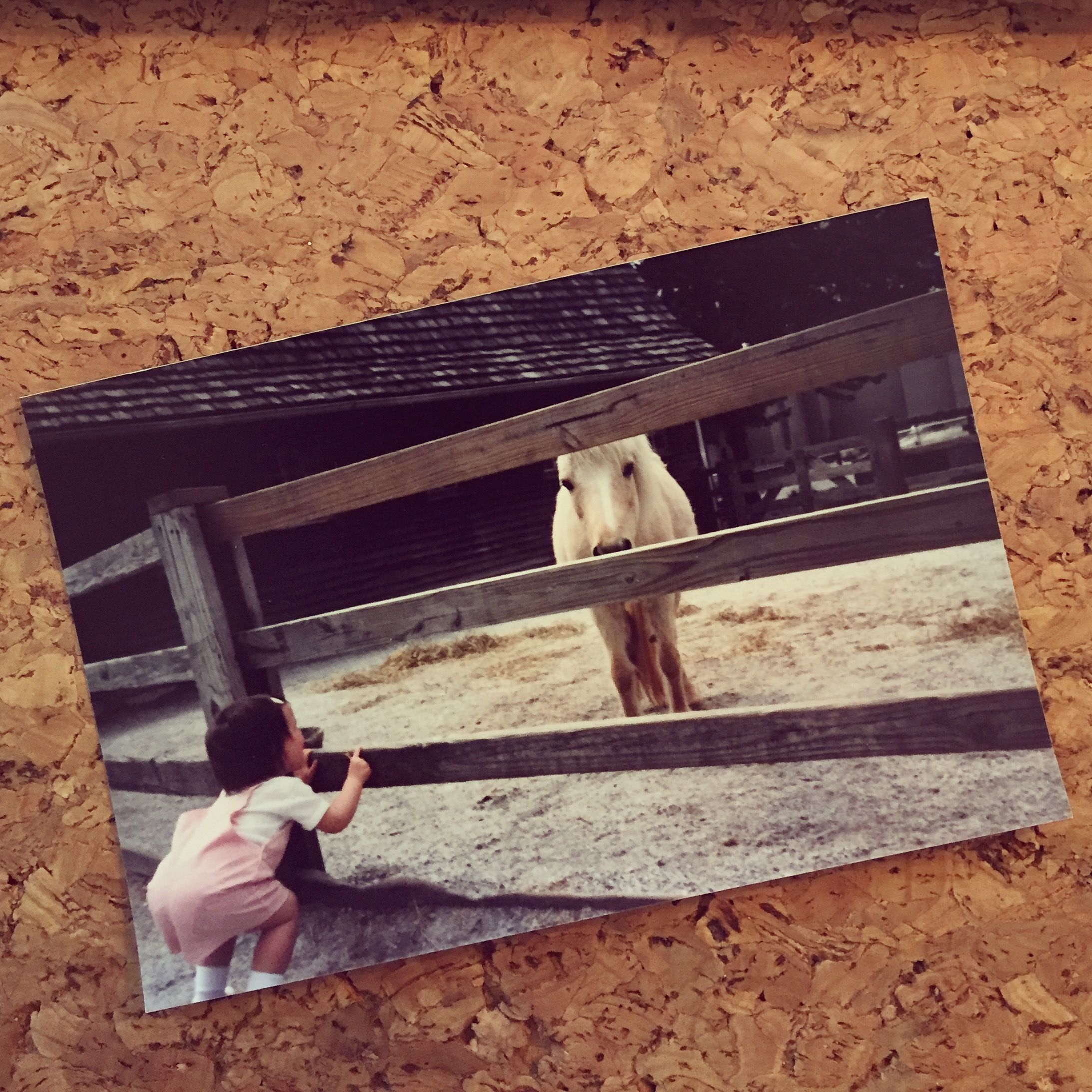
When she wasn’t spending time in nature as a child, Dr. Wilkinson was competing in equestrian events. She rode all four of her undergraduate years at the University of the South, where she graduated the valedictorian. Upon receiving the Rhodes scholarship, Dr. Wilkinson went to the University of Oxford, where she received her Doctorate in Philosophy in Geography and the Environment. Throughout, she rode competitively on the Oxford equestrian team, only to leave riding behind in the early days of her career. While working on Drawdown, Dr. Wilkinson began riding again at a barn in Atlanta, where she is based. “I really feel there are hoof prints dancing through [the book],” she says. “I don’t think I could have stayed sane doing the work at the clip that was required if I wasn’t riding every morning.”
When she and Dr. Johnson came up with the name “All We Can Save,” which is inspired by a line from Adrienne Rich’s poem “Natural Resources,” they meant the “we” to include not only humans, but also all of the creatures of the earth — including horses, of course.

It wasn’t enough for the female climate solution leaders to talk on the retreat. Dr. Wilkinson and Dr. Johnson also wanted to imbue them with authority. Knowing that people are more likely to be considered thought leaders in their fields if they have published a book, the pair decided to gather together the writing of 60 women, including journalists, scientists, naturalists, poets, academics and indigenous activists, in a single book. Named one of the best books of 2020 by Smithsonian magazine, the All We Can Save anthology, a collection of essays and poems, will be released as a paperback this fall.
The All We Can Save Project does not see leaders as beings flush with power, able to singlehandedly change the world. Instead, it imagines a new world order, in which leadership embodies collective thinking and action. “We’ve been living in a world so very much shaped by extractive capitalism, and now we’re trying to move to something else in part by reclaiming ways of being and living that have been sidelined and suppressed,” Dr. Wilkinson notes. For example, the ways that indigenous communities, including those currently protesting the Tar Sands Pipeline in Minnesota, have been living in balance and reciprocity with the planet’s living systems since the birth of humanity. Despite making up only 5% of the world’s population, indigenous people support 85% of the world’s biodiversity. They do so by existing in a state of collaboration and openness, Dr. Wilkinson notes — a state largely absent from the male dominated world of climate policy.
The next step for the All We Can Save Project is organizing reading groups for the anthology, as well as convening a series of conversations about the diverse ways to work on climate solutions that will be launched in the Fall of 2021.
Anyone can become involved in the climate solution movement. It's not enough to merely change your personal behavior — for example, using a reusable cup rather than a single use plastic water bottle, or eating a plant rich diet. “LED lightbulbs are great but they are not going to cut it,” Dr. Wilkinson says. Instead, she suggests joining forces with those around you, and bringing your "particular superpowers" to work. “Let’s figure out how to make the biggest strongest team possible to make collective change,” she says.
The good news is that the climate solution movement needs every kind of skill set. “We need teachers, lawyers, designers, storytellers — we need it all,” Dr. Wilkinson says. She suggests that if you want to make a difference, think about the unique passion or talent you can bring to the table. It doesn’t need to be extraordinary. It just needs to be something you can bring from your own life. For example, if you love composting, but your municipal government doesn’t support it, consider starting a composting start-up in your neighborhood. Or, if you’re a regular bike rider, consider organizing a bike advocacy group in your town. Other ways to get involved include joining a local political campaign, protesting for land defense rights and campaigning for politicians that support clean electricity standards. If you’re lost, and don’t know where to start, Dr. Wilkinson suggests checking out organizations including the Sunrise Movement, 350.org and the Center for Cultural Power.
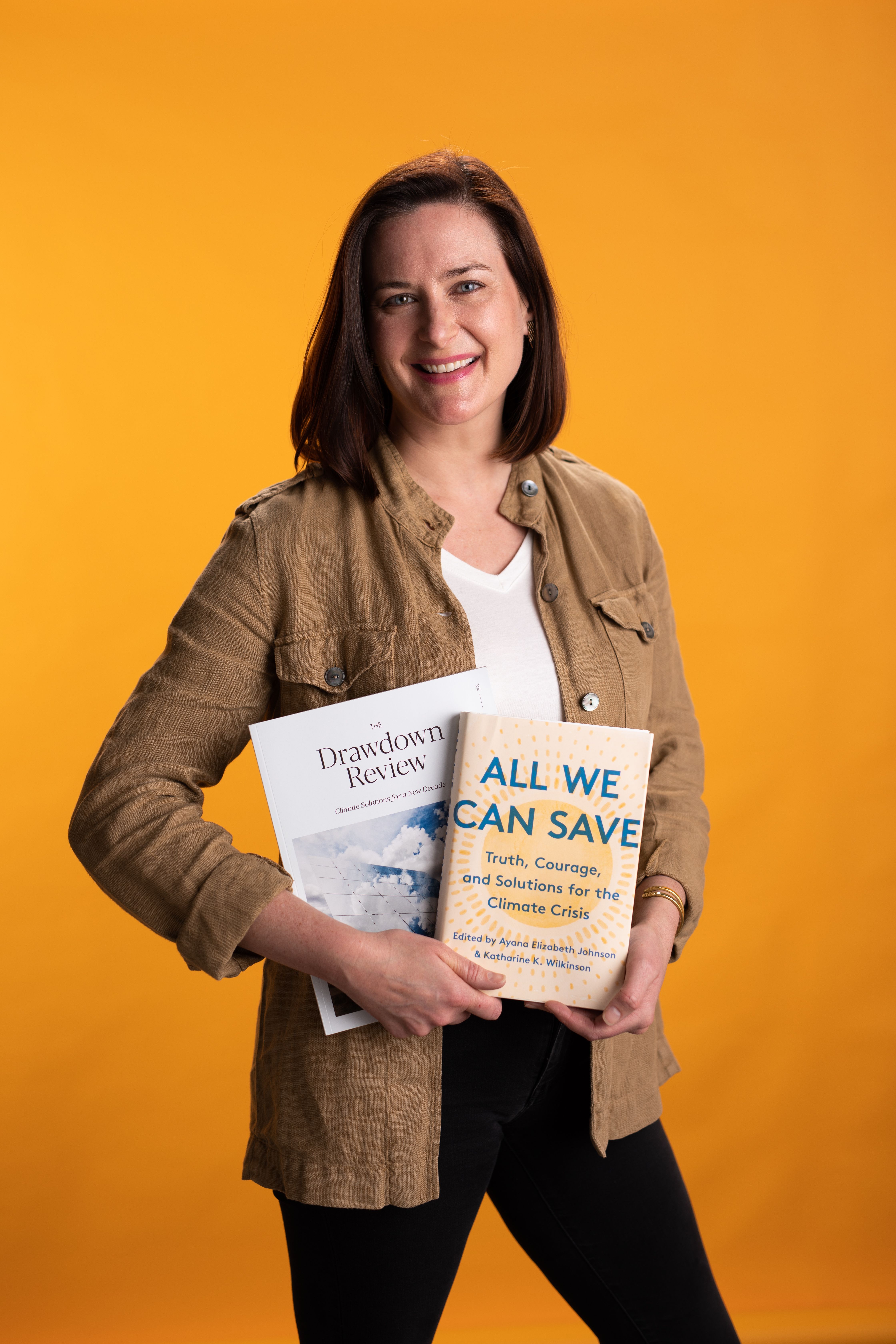
Photo credit: Ben Brinker
In order to reverse the apocalyptic future assured by climate change, Dr. Wilkinson believes that humans need “truth, courage and solutions.” “I think sometimes people just focus on one of the three, and we lose that kaleidoscopic vision that we need to have, and which women tend to more easily bring to the table,” she says. Truth in data, and the reporting of data. Courage in the form of ferocious love. And solutions imagined by ordinary people who are not superheroes, but instead, just ordinary men and women who love the earth.
At the end of the day, Dr. Wilkinson believes that humans are capable of radical change. That you, ordinary human being reading this article, are capable of saving the planet. The first step is joining hands with someone already in the fight. “It’s that sense of partnership and community that keeps us going when it’s hard and scary and when it feels like the boulder is rolling back down the mountain,” Dr. Wilkinson says. “Don’t go it alone.”
Katharine's Causes
During each interview, we ask each guest what cause or social issue they are paying particularly close attention to, in hopes to raise awareness.
The All We Can Save Project was founded by Dr. Wilkinson and Dr. Ayana Elizabeth Johnson in order to give women, and most especially women of color, the support and resources they need to lead the climate solution movement.
Project Drawdown states that its mission is to help the world reach "drawdown," the state in which levels of greenhouse gases in the atmosphere stop climbing and start to steadily decline. Project Drawdown partners with private sector companies to create plans for ambitious climate action, as well as runs an education program on climate change.
The Sunrise Movement is a consortium of youth who aim to stop climate change and create millions of jobs in the process. The movement organizes marches, and helps to educate the public on legislation such as the Green New Deal.
The Center for Cultural Power is a women of color, artist-led organization that inspires artists and culture makers to imagine a world where we live equitably and in harmony with nature. Along with offering training and fellowship for artists, the Center for Cultural Power create art and content that addresses issues of climate, gender, racial equity and migration.
350.org is a community-led organization that wants to accelerate the transition to a clean energy economy, and ban all oil, coal and gas projects from being built through local resolutions and community resistance.
Feature photo by Lee Schurlknight